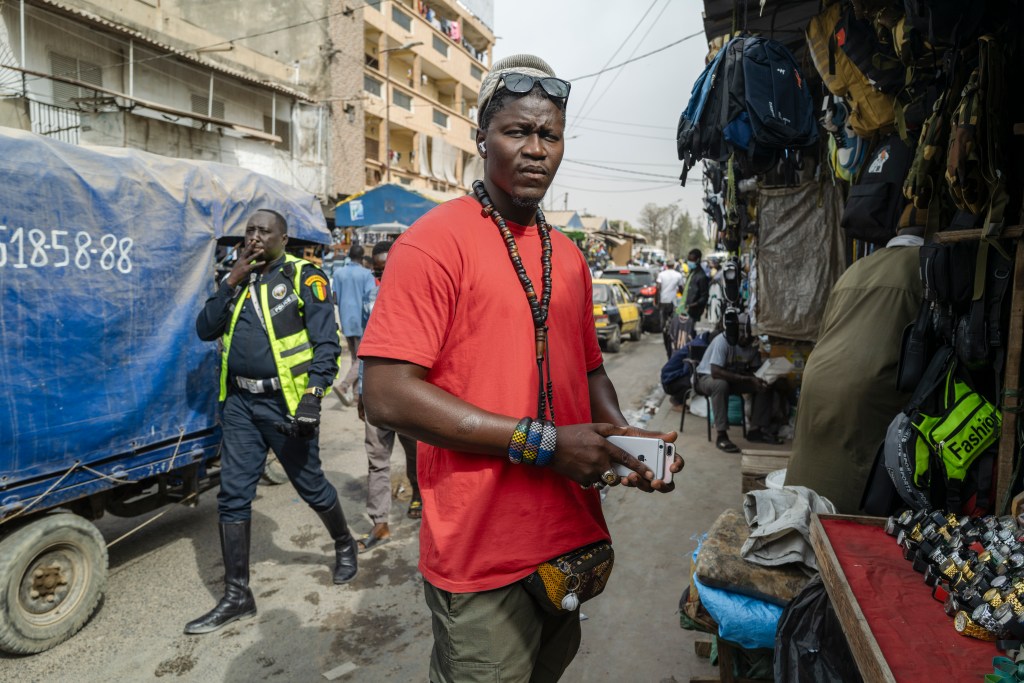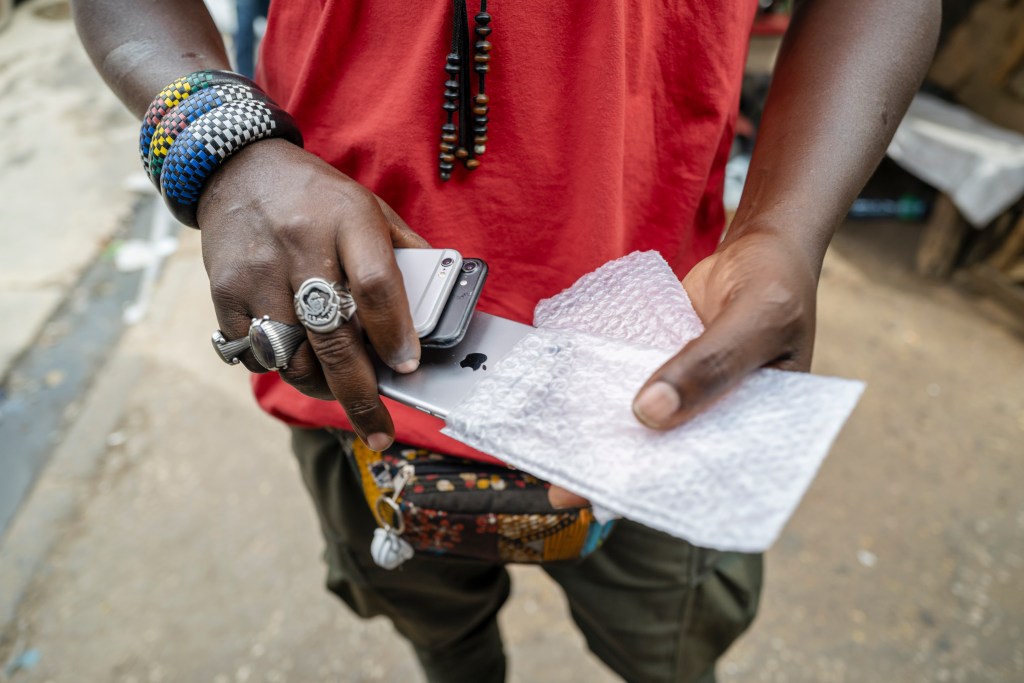Senegalese migrants illegally crossing US border relying on TikTok, WhatsApp to plan out their journeys
Contact The Author
Senegalese migrants are illegally crossing the border in waves with many relying on apps like TikTok and WhatsApp to plan their journeys to the United States through Nicaragua.
U.S. authorities arrested Senegalese migrants 20,231 times for crossing the border illegally from July to December. That’s 10 times higher than 2,049 arrests during the same period of 2022, according to U.S. Customs and Border Protection. Many cross in remote deserts of western Arizona and California.
Word of the Nicaragua route began spreading early last year in Sengal’s capital city of Dakar and took hold in May, according to travel agent Abdoulaye Doucouré.
He said sold about 1,200 tickets from Dakar to Nicaragua in the last three months of 2023 at around several thousand dollars each.
“People didn’t know about this route, but with social networks and the first migrants who took this route, the information quickly circulated among migrants,” he told The Associated Press.
The Senegalese migrants who’ve made their way to New York City include nearly 80 men who authorities recently discovered living in a cramped basement under a Queens furniture store. The beds were so in-demand that only half the inhabitants can sleep there at one time.
Fire prevention inspectors discovered the illegal boarding house Monday night when they were called to 132-02 Liberty Avenue in South Richmond Hill to investigate reports of a large collection of e-bike batteries, according to the FDNY.
Gueva Ba told the outlet he failed 11 times trying reaching to reach Europe by boat from Morocco as part of his quest to get to the U.S.
In 2023, the former welder heard about a new route to the U.S. by flying to Nicaragua and making the rest of the journey illegally by land to Mexico’s northern border.
“In Senegal, it’s all over the streets — everyone’s talking about Nicaragua, Nicaragua, Nicaragua,” said Ba, 40, who paid about $10,000 to get to Nicaragua in July with stops in Morocco, Spain and El Salvador. “It’s not something hidden.”
Keep up with today's most important news
Stay up on the very latest with Evening Update.
Thanks for signing up!
Ba was deported from the U.S. with 131 compatriots in September after two months in detention, but thousands of other Senegalese have gained a foothold in America.
Many turn to savvy travel agents who know the route — touted on social media by those who’ve successfully settled in the U.S.—and seek help via social networks, and apps like WhatsApp and TikTok.
Some are motivated by Senegal’s political turmoil — authorities delayed February’s presidential elections by 10 months — but the sudden draw seemed to hinge largely on social media posts and the spread of the route there.
Spikes attributed to social media have occurred in other West African nations, whose people have historically turned first to Europe to flee. Many are eventually released in the U.S. to pursue asylum in immigrant courts that are backlogged for years with more than 3 million cases.
As U.S. sanctions against Nicaragua’s repressive government have increased, the government of President Daniel Ortega has used migration to push back.
The Nicaraguan government hired a Dubai-based firm to train Nicaraguan civil aviation to manage national immigration procedures for charter flight passengers.
The U.S. State Department has demanded Nicaragua to “play a responsible role” in managing migration, but that has yet to be seen. Nicaraguan first lady and Vice President Rosario Murillo did not respond to a request for comment on the surge in extra-continental migration through her country.
Ousmane Anne, 34, left Senegal on Sept. 25 with a plane ticket to Nicaragua, purchased from a travel agency. His journey took a month — longer and costlier than anticipated. Mexico was treacherous, he said, describing his traveling group as frequently harassed, threatened and robbed by gangs.
Despite the enthusiasm back home, he said, he’d be hard-pressed to recommend the trip to anyone who doesn’t understand the risks. But he made it to New York, which has the largest Senegalese population of any U.S. metropolitan area, according to census data.
“I knew it would not be very easy to come here to the States, but the hope that I had was higher than all the obstacles and problems,” Anne said. “I knew the opportunities would be greater here.”
With Post wires















